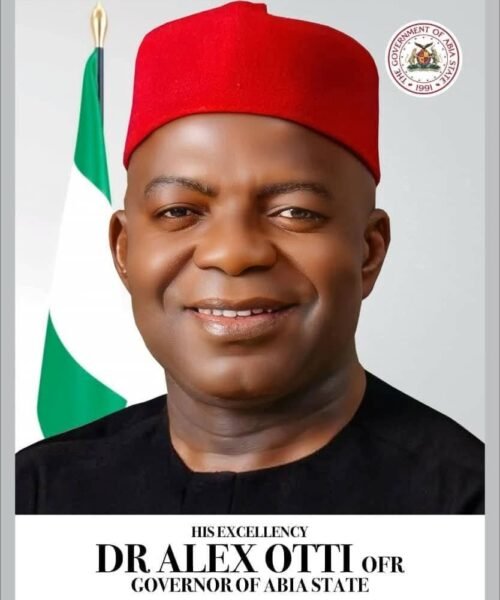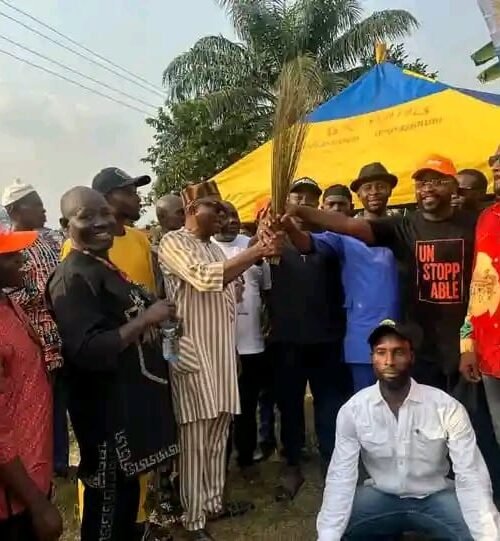Breaking Free from Firewood: Abia’s Transition to Cleaner Energy
According to the National Bureau of Statistics (NBS), about 68.3% of Nigerian households still rely on solid biomass, specifically firewood and charcoal, for cooking ¹. This traditional cooking method not only harms the environment but also poses health risks, with the World Health Organization estimating that smoke from kitchen fires leads to approximately 93,300 deaths annually in Nigeria.
The high percentage of households using firewood is largely due to the expensive nature of alternative cooking methods. For instance, the average retail price for cooking gas increased by 83.62% from N2057.71 in March 2021 to N3708.58 in February 2022. This surge in prices has led many Nigerians to shift to dirty fuels like sawdust and charcoal.
Some shocking Truths:
Cultural Beliefs: Many Nigerians prefer traditional cooking methods due to cultural beliefs and the taste of food cooked with firewood.
Lack of Access: Limited access to clean energy sources, especially in rural areas, contributes to the high reliance on firewood. Economic Factors. The high cost of alternative cooking methods makes firewood a more affordable option for many households.
This fact that has unearthed by NBS speaks to the absymal state of our basic infrastructure. Economically empowered citizens transit organically to safer energy mix. Abia citizens will automatically drop fuel wood and adapt environmentally friendly alternatives if they have the purchasing power. Addressing the basic infrastructure urgently and aggressively will do the magic.
Abia’s Basic Infrastructure:
Let me define this concept. Basic infrastructure refers to essential facilities and services necessary for economic growth, social welfare, and quality of life. These include:
- Transportation (roads, bridges, airports, seaports)
- Energy (electricity, gas, renewable energy)
- Water supply and sanitation (pipelines, treatment plants, waste management)
- Communication (telecom, internet)
Looking inwards, Abia state’s basic infrastructure is receiving the urgent intervention is requires and more is in the pipeline as we speak.
Why is Abia State Government aggressively Involved?:
Abia State Government involvement in basic infrastructure is crucial due to:
- Public goods nature: Basic infrastructure provides benefits to society as a whole.
- High upfront costs: Private sector may hesitate to invest due to high initial costs.
- Social equity: Government ensures equal access to essential services.
- Economic growth: Basic infrastructure attracts businesses, creates jobs, and stimulates growth.
- National security: Critical infrastructure (e.g., energy, transportation) requires government oversight.
How can Abia State Organized Private Sector Participate?:
The private sector can partner with the government through:
- Public-Private Partnerships (PPPs): Collaborative projects, sharing risks and rewards.
- Concessions: Private management of public infrastructure (e.g., toll roads).
- Build-Operate-Transfer (BOT) models: Private sector builds, operates, and transfers ownership.
- Joint Ventures: Shared ownership and management.
- Outsourcing: Private sector provides specific services (e.g., maintenance, operations).

Exactly 1 week ago today, Governor Alex Chioma Otti, three of his amiable aides and four commissioners drained energy, time and comfort so as to actualize bold and visible implementation. These projects and programs take time. Their gestation periods are much longer. Now, some of our enthusiasts, compare Abia State to Enugu State, forgetting that the later has enjoyed a lot of capital project injection since 1985 compared to Umuahia. Ebonyi State, on the other hand is enjoying fast deployment of Capita projects because there’s zero financial backlogs, and non-existent or negligible diversionary power centres.
Again, remember that our governor had several times called on OPS to consider our state. These are some examples that Abia state in the governor’s strategy will require partnership.
Examples:
- Hospitals: Private hospitals can partner with government hospitals for training, research, or specialized services.
- Schools: Private schools can collaborate with government schools for curriculum development, teacher training, or resource sharing.
- Roads: Private companies can build and maintain toll roads, while government regulates and provides oversight.
- Electricity: Private power generators can supply electricity to the national grid, while government ensures transmission and distribution.
- Water supply: Private companies can manage water treatment and distribution, while government regulates quality and access. Some many towns in the state, Abiriba inclusive require urgent public water supply. Borehole water supply is a short run solution that can not meet the needs of our citizen. The Governor needs our help and support.
Now, the question: Why is the governor private sector friendly and what benefits can they bring to the table.
Benefits of Private Sector Participation:
- Efficiency and expertise
- Increased investment
- Improved service quality
- Reduced government financial burden
- Enhanced competition.
With the governor’s banking sector experience, his cabinet members are currently cracking some challenges which include:
- Regulatory frameworks
- Risk allocation
- Financing
- Public perception
- Coordination between government and private sector
His Excellency believes that effective collaboration between government and private sector can bridge the infrastructure gap, promote economic growth, and improve living standards.
Dr Chukwuemeka Ifegwu Eke writes from the University of Abuja Nigeria







